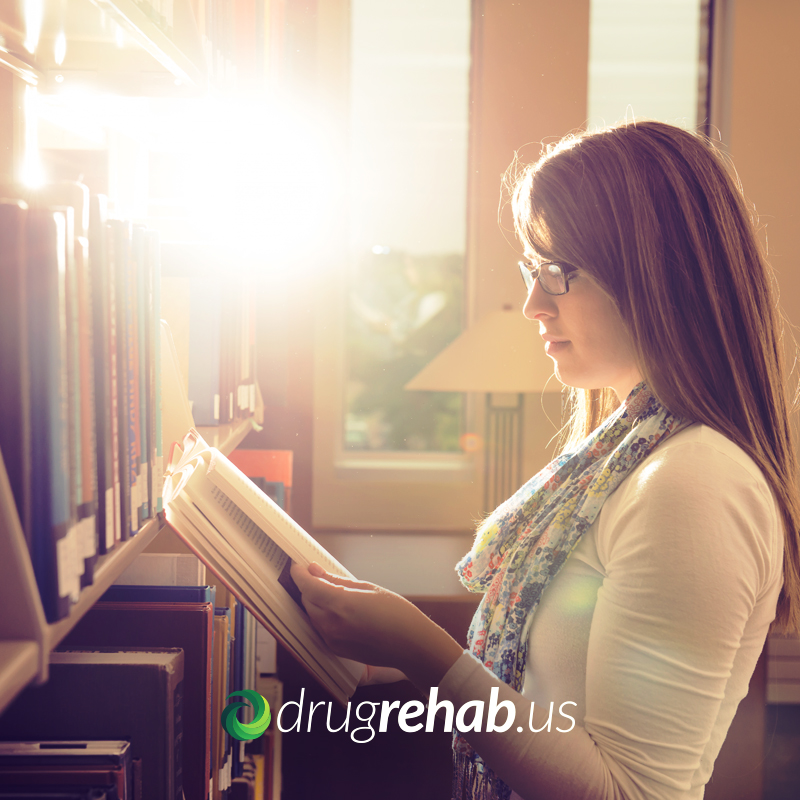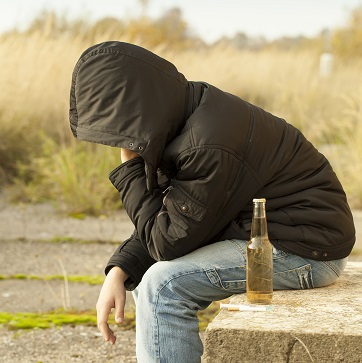06 Jul 2015
Sending Your Addicted Teen To College
Sending your child off to college can be a stressful period. This is probably the first time she has been away for longer than a stint at summer camp. There are also both realistic and symbolic transitions. She is becoming an independent adult by going off to school without you. She will be on her own to go through the academic and social experiences of college life, as well as the challenges. If your teen has struggled with substance abuse the stakes are higher than normal.
Addicted Teens
For some adults, it may seem unlikely that a young person going off to college could already be an addict. The scary truth is that teens do become addicted. The earlier they experiment with drugs or alcohol, the more likely they are to get hooked.
According to surveys, among college students participating in recovery programs on campus, the average age at which they first became addicted was 15. Common addictions in teens are to alcohol, marijuana and prescription drugs.
What To Do When Sending Your Addicted Teen To College
The following are several tips to help give your addicted teen the best shot when sending them to college and to help ease your concerns.
Check Out The Party Schools
You may be tempted to insist that your teen stay home and go to community college, and that might be the best choice. But if you both feel she is ready for the campus experience, make your selection carefully. You can easily find rankings of the biggest party schools in the U.S. These are best avoided.
In fact, you can find rankings that show you the opposite: the most sober schools. Brigham Young University, the Mormon-associated school in Utah, regularly tops this list. There are plenty of choices in schools that pride themselves on taking a sober stance. Of course, attending such a school cannot guarantee your child will stay sober, but it can help.
Look For Sober Living Opportunities
Regardless of which college your teen chooses, investigate their living arrangements. Many colleges now offer dorms or other types of housing for students who want to be sober. In these dorms your teen will live with other students who are in recovery from substance abuse. The support system built into this type of living arrangement can be a powerful way to resist the urge to party. Living in a dorm with students that are drinking and even using drugs may be more temptation than she can handle.
Continue With Treatment
Not all college campuses will have treatment programs for addicted students, but you can set up private therapy sessions to make sure your teen has the chance to keep up with her treatment. You can also help her look for support group meetings that she can attend. She may feel strong in her sobriety going into college, but the stresses and anxiety that come with such a major life transition may send her into a tailspin. Make sure she has support and treatment options ready in case she feels she needs them.
Also be sure that your teen has access to mental health services. Many addicted students struggle with depression and anxiety as well as other mental health issues. Check with the college’s on-campus health center to see what kinds of programs they have available, including emergency mental health services.
As you gather all of this information, be sure to keep your teen in the loop. Make her a part of her own sobriety so that she can take ownership and responsibility. You can’t be there with her forever. You have to let her go and give her a chance to be independent, but you can adequately prepare her to be successful.
Read Our Other Posts On What Parents Need To Know
If you have a teenager in the house you have a lot of things to worry about. You want her to be successful in school, to have a lot of friends and to be happy. Whether you realize it or not, you also need to worry about substance abuse. You might think that your child is too well adjusted to ever try smoking, drinking, or using drugs, but you might be wrong. No teen is immune from peer pressure. Among the many worries we have as parents today, there’s a new one: e-cigarettes.
What Are E-Cigarettes?
E-cigarettes are electronic devices that deliver nicotine in water vapor instead of in cigarette smoke. Inside each device is a battery that warms up a vial of nicotine dissolved in water. The user inhales nicotine and exhales water vapor. Supporters of e-cigarettes say that the devices can be used to help smokers quit. It gives a smoker a safer alternative to use in order to be weaned from nicotine. Smoking an e-cigarette is called vaping.
Are E- Cigarettes Harmful?
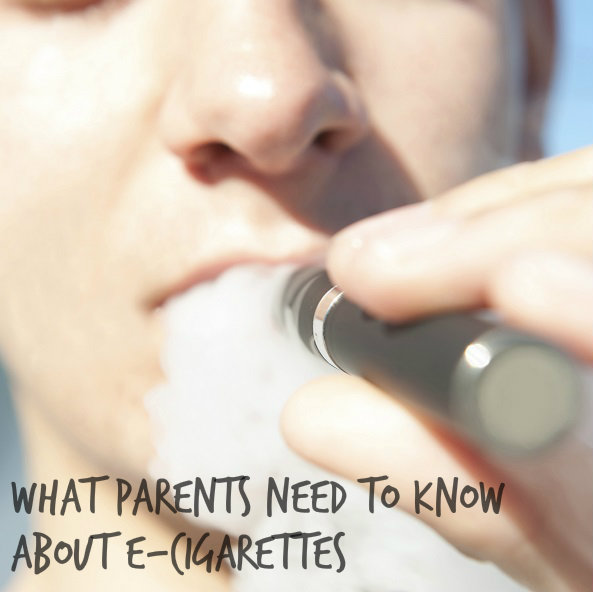 One of the main problems with e-cigarettes is that they are new and not fully tested. While proponents say that they are safe and that even the second-hand vapor is safe, we really don’t know for sure. What we definitely know is that an e-cigarette delivers hits of nicotine, a mind-altering, highly addictive substance. They may be free of all the toxins in cigarette smoke, but if your teen vapes she will become addicted to nicotine. We also know that nicotine can cause cognitive defects in young brains that are long lasting.
One of the main problems with e-cigarettes is that they are new and not fully tested. While proponents say that they are safe and that even the second-hand vapor is safe, we really don’t know for sure. What we definitely know is that an e-cigarette delivers hits of nicotine, a mind-altering, highly addictive substance. They may be free of all the toxins in cigarette smoke, but if your teen vapes she will become addicted to nicotine. We also know that nicotine can cause cognitive defects in young brains that are long lasting.
Another concern is the possibility of e-cigarettes acting as gateway drugs. Research has shown that people who abuse drugs or are addicted follow a pattern. They start with cigarettes or alcohol, and then move onto illegal and harder substances. Teens using e-cigarettes because vaping seems cool and largely safe put themselves at risk for future substance abuse.
Are Teens Using E- Cigarettes?
It may seem unlikely that teens would be interested in a device designed to help smokers quit, but the statistics say otherwise. According to the Centers for Disease Control and Prevention, more than a quarter of a million young people used e-cigarettes in 2013. This number represents only the teens who had never smoked a real cigarette before. This means that e-cigarettes are responsible for getting a huge number of teens hooked on nicotine who may never have tried smoking otherwise.
How Can I Protect My Teen From E- Cigarettes?
The best way that you can protect your teens from the potential dangers of e-cigarettes is to talk to them. You can’t always be watching and guiding them, but they do value your opinions. You have the potential to influence their choices, even when you aren’t by their side. Let them know that you don’t want them to vape or use real cigarettes.
By talking to your teens about e-cigarettes you also give them the power of information. Many teens start using these devices with the false assumption that they are perfectly safe. They may be safer than cigarettes, but they are not safe and there are many risks involved. Educate your teens and help them to be aware of the risks and you will empower them to make better decisions. E-cigarettes are likely here to stay, and they are useful tools for smokers, but they pose risks to our young people. By spreading awareness we can all do our part to protect them.
E-Cigarettes Being Secretly Used To Hide Drug Use – See How They’re Getting Away With This!
16 Feb 2015
Drug-Testing Your Teen – Can You And Should You?
Drug use is a big problem among young people today. They have more access than ever before and as a parent you have reason to worry. No teen is immune to the pressure to use drugs, not even the star athletes or the academic achievers. Doing your best to prevent your child from abusing drugs is important. You have a big influence over him and the choices he makes. Should your preventative measures include drug tests? There are plenty of drug tests on the market and you can do home tests or have your child tested at your doctor’s office.
The Dangers Of Drug Use In Teens
As a responsible parent you should be concerned about drug use, even if you feel like your teen would never make that choice. Teens face a lot of pressures and many turn to drugs, even the ones you would never suspect of doing so.
 And the dangers of using drugs are great for young people. They run the risk of developing a life-long habit. They may have accidents while under the influence and hurt or kill themselves or others. Drug use may lead to psychiatric problems, antisocial behaviors, and poor academic performance. With so many potential negative consequences, it might seem like drug testing is the only way to truly protect your child.
And the dangers of using drugs are great for young people. They run the risk of developing a life-long habit. They may have accidents while under the influence and hurt or kill themselves or others. Drug use may lead to psychiatric problems, antisocial behaviors, and poor academic performance. With so many potential negative consequences, it might seem like drug testing is the only way to truly protect your child.
Drug Testing: The Options
You can find home drug testing kits easily online or at a drugstore and most of them use urine to test for the presence of drugs. These home kits have some limitations, though. Most urine tests don’t detect all illegal drugs, including party drugs like LSD, ecstasy and ketamine. They also fail to detect inhalants, a common way that teens get high on household chemicals, steroids and alcohol. These tests are also imperfect in their accuracy. They can produce both false positive and false negative results. Your other option, which is likely to produce better results, is to have a test done by your pediatrician and analyzed in a lab.
Should I Drug Test My Teen?
Whether you choose to use drug testing as a preventative measure is personal. The American Academy of Pediatrics (AAP) strongly opposes using involuntary drug tests. In other words, if you choose to go this route, make sure your teen understands your reasoning and agrees to be tested. Forcing your teen to be tested for drugs can be damaging to your relationship.
The AAP also believes there are better ways to prevent drug use or to monitor a teen who is displaying signs of possible drug use. Start by talking to your child about drugs. Talk about how harmful they can be and how your teen can say no to friends who are using. Make it clear that you will not tolerate drug use and why. Talking openly is a powerful way to stay connected with your child and to influence the choices he makes.
One situation that may be more appropriate for drug testing is if you have a teen that has been through a treatment program for substance abuse. It may be an important part of his recovery to test him regularly. That way you can catch a relapse before it gets out of hand. If he is serious about his recovery, he should agree to the testing.
Drug use in teens is a scary situation to contemplate. Young people are vulnerable to peer pressure and they can suffer so much damage from drug use. Do your best to influence your teen’s choices and to monitor his behavior for signs of drug use. Just remember that you are not a police officer. You are a parent who cares about your child.
Afraid That Your Teen Is Abusing Drugs & Don’t Know What To Do?
Call Us Now – We Are Here To Help You!
It’s important to have difficult discussions with your children. Talking to them about the birds and the bees, heartbreak, peer pressure and other life challenges is necessary because it helps them understand how to make better choices. It also builds a close and trusting relationship between you and them. One of those important conversations should be about substance abuse. If you’re like most parents, you want to tell them to never even try drugs, but what if you used drugs when you were younger? Do you confess? And if so, how do you do it without sounding like a hypocrite?
To Tell Or Not To Tell
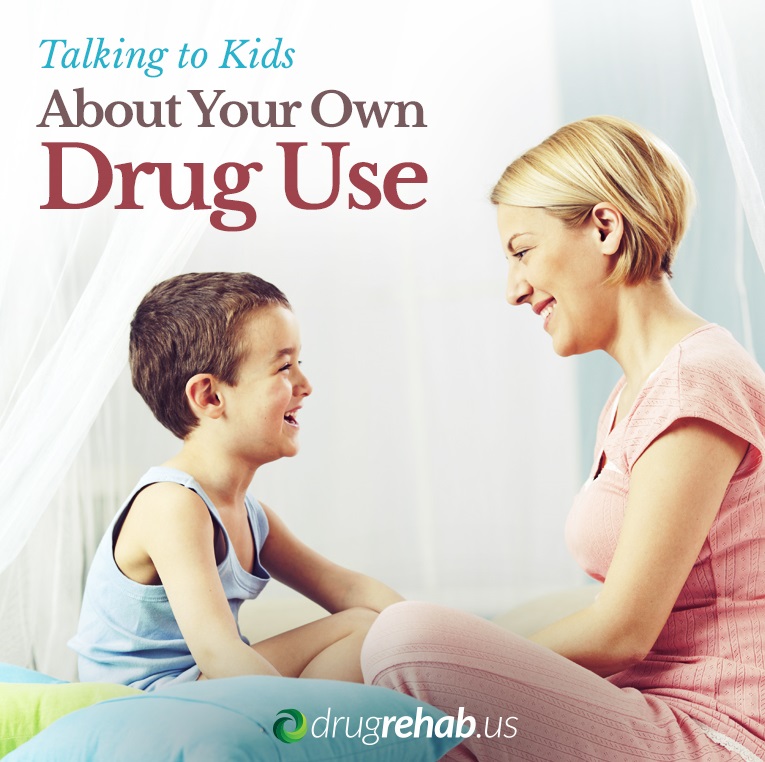 The first thing to consider is whether or not you will disclose your past with drug abuse or addiction. You don’t have to, but know that they could find out another way. Ask yourself how your kids will feel if they learn that you abused drugs from someone else. Age appropriateness is another important consideration.
The first thing to consider is whether or not you will disclose your past with drug abuse or addiction. You don’t have to, but know that they could find out another way. Ask yourself how your kids will feel if they learn that you abused drugs from someone else. Age appropriateness is another important consideration.
Maybe you feel it is important to tell your children. Make sure you wait until your children are at the appropriate age and maturity level to hear about this. No one can tell you if you should or should not tell your kids about your past drug use. The choice is personal and should be made with your children’s best interests in mind.
Tips When Talking To Your Kids About Drug Abuse
If you have made the important choice to talk to your kids about your drug use in the past, there are some things you should keep in mind. Be prepared and be thoughtful. This is not a discussion to rush into or to have without giving it much thought.
Here are some tips to help you make the conversation a successful one:
- Spare the details – Your children don’t need to hear every sordid detail of your past. Be prepared to be honest and to answer their questions thoughtfully and openly, but you don’t have to make it a tell-all. Knowing too much detail will probably only upset your children.
- Talk about negative consequences – As you talk about what you did in your past, put emphasis on the negative consequences. Talk about how drug abuse disrupted your life or about any narrow escapes you had. Remember that the point of this talk is not to share your personal story, so much as to deter your children from trying drugs.
- Listen – This should be a conversation, not a lecture. Once you have explained what you want your kids to know, let them talk and ask questions. Your children always appreciate when you really listen to them. If they don’t have much to say in the moment, ask them questions or encourage them to think about it and come back to you with questions later.
- Remain calm – This conversation is bound to stir up unpleasant memories and feelings. Do your best to keep your emotions in check and to stay calm. Don’t lose your temper, no matter how your children react. And if the discussion takes a bad turn, bring it to a close and return to the topic later, when everyone has cooled down.
Talking to your kids about drug abuse is never easy. If you have a past history of drug use the conversation becomes much more challenging. Remember that the main point of the conversation is to encourage your children to make the right choices and to not use drugs. When parents tell their kids not to use drugs, they listen and are more likely to make those good choices. Have this conversation sooner so that your kids are equipped with the right information to make the best decisions about drugs.
Call Us Now To Speak To Our Professional And Caring Staff!
The device called an e-cigarette is a big story in the news these days. They appeared on the market several years ago as a way to help smokers quit and now they are reaping in billions of dollars in sales every year. Controversies surround these devices; not least of which is the harm they may pose to children and teens. So what is an e-cigarette and what do you need to know about them to protect your children? Get the facts and talk to your kids about e-cigarettes before they experiment on their own.
What Are E-Cigarettes?
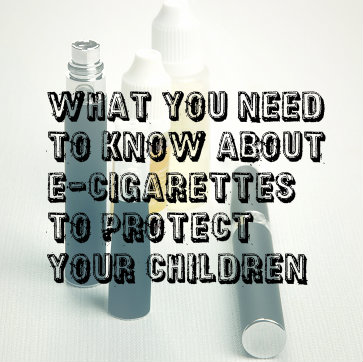 An e-cigarette is a device that uses a battery to warm a small vial of nicotine dissolved in liquid. The user inhales the vapor to get the nicotine and exhales water vapor. The idea is that a smoker can use an e-cigarette to get a nicotine fix without inhaling the thousands of harmful compounds that are in cigarette smoke and which cause health problems. Studies as to whether they really help people quit are ongoing. There is no definitive answer yet, but what seems to be clear is that e-cigarettes are useful for some smokers and not for others.
An e-cigarette is a device that uses a battery to warm a small vial of nicotine dissolved in liquid. The user inhales the vapor to get the nicotine and exhales water vapor. The idea is that a smoker can use an e-cigarette to get a nicotine fix without inhaling the thousands of harmful compounds that are in cigarette smoke and which cause health problems. Studies as to whether they really help people quit are ongoing. There is no definitive answer yet, but what seems to be clear is that e-cigarettes are useful for some smokers and not for others.
Are E-Cigarettes Harmful To Kids?
Although they don’t produce smoke, e-cigarettes are still devices that deliver a hit of a one of the most addictive substances, nicotine. Because e-cigarettes are marketed as a healthier alternative to smoking, most young people inaccurately assume there are no risks in using one. Nicotine is highly addictive and any child or teen using an e-cigarette is at significant risk of becoming addicted to it. There is also the risk of poisoning. Nicotine is poisonous in high doses and the liquid in the e-cigarette can be toxic.
Nicotine is a drug that affects the nervous system, the brain, and the heart. Someone abusing nicotine will experience an elevation in blood pressure and heart rate. High doses can cause a dangerous heart arrhythmia. In rare cases, and with large doses, this arrhythmia can be fatal. With their smaller bodies, kids are more vulnerable to these risks than adults are.
How Do I Protect My Kids from E-Cigarettes?
When it comes to any kind of drug, knowledge is power. Once you understand the risks and dangers associated with e-cigarettes, you can share them with your kids. You should have regular conversations with your kids about substance abuse, alcohol, peer pressure, smoking and other issues they face as children and as teens. Bring e-cigarettes into the conversation and make sure they understand that these devices are not safe.
Also make sure your kids understand how e-cigarette makers are specifically trying to target them to get them hooked on nicotine. The manufacturers make these devices with an array of flavors that mimic fruit, candy, cookies, and specific products that children love, even Girl Scout cookies. The companies making e-cigarettes have no qualms about targeting kids and teens in this way and they even sponsor events, like rock concerts, that attract young people.
Despite the risks, teens and even children are trying e-cigarettes. According to surveys, one in ten high school students has already tried e-cigarettes. As a parent, it is your job to stay on top of the changing landscape of harms and risks posed to your children and to protect them. By learning about e-cigarettes you can help your kids understand all the reasons they should avoid these devices. The risks of nicotine use are too great and we still don’t understand the full danger of e-cigarettes. Keep yourself and your children knowledgeable and you’ll empower them to make better choices.
Learn More About How E-Cigarettes Are Secretly Being Used To Hide Drug Use
Even in our connected and technological age, stigma persists about drug addiction. Parents may not want to believe that their child could become a drug addict, and there is still much misunderstanding about things such as prescription drug abuse and its risks. Education is a vital approach for dealing with this stigma and these prevalent misconceptions, and a recent forum held by the Council on Addiction Prevention and Education (CAPE) and the Wappingers Central School District (Dutchess County, New York) is a perfect example of the value of the approach. The increasing rates of drug abuse in Dutchess County is of great concern to politicians and local experts, and the success of the mid-March program by the Wappingers school district has led numerous other districts to plan similar events in April, with the aim of curbing the growing issue.
What Happens At Drug Abuse Forums?
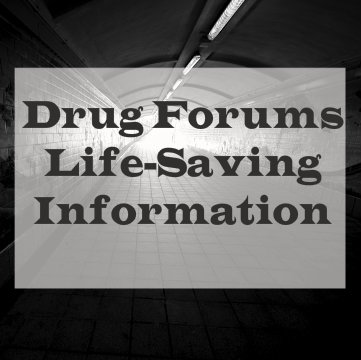 Drug abuse forums give those with direct experience of addiction and the process of recovery to share their stories, offering educational messages to the audiences, who are often teens but could also include their parents and members of the local community. This allows those in attendance to understand the sheer scope of the harm caused by drug abuse and addiction, and although not all of the stories end positively, many offer hope to those struggling with addiction by showing that recovery is possible. Talks will either be given by the ex-users themselves or by family members or loved ones. Due to their emotional nature, they are frequently poignant, moving and memorable.
Drug abuse forums give those with direct experience of addiction and the process of recovery to share their stories, offering educational messages to the audiences, who are often teens but could also include their parents and members of the local community. This allows those in attendance to understand the sheer scope of the harm caused by drug abuse and addiction, and although not all of the stories end positively, many offer hope to those struggling with addiction by showing that recovery is possible. Talks will either be given by the ex-users themselves or by family members or loved ones. Due to their emotional nature, they are frequently poignant, moving and memorable.
Lessons Learned The Hard Way
The event held in March featured many such stories told to a full auditorium at John Jay Senior High School. This was partially thanks to a new initiative on the part of high school coaches that makes attendance mandatory for student athletes, an approach praised by CAPE. The talks cut through the stigma surrounding addiction and showed that the process is very much one of “learning lessons the hard way.”
One speaker was Suzanne DeCosta, who spoke about her son’s addiction to narcotic painkillers and heroin. She described him as “smart, funny and lovable,” but during his teen years, what was once recreational drug use turned into addiction. DeCosta comments that “as a parent, you don’t ever want to believe your child is an addict,” but points out that this is wishful thinking—it can happen to anyone. Her son Michael overdosed on heroin, and has had numerous stretches in rehab. At present, he is two years sober, but the family is more than aware that it will require continued effort on his part to stay in recovery. They say they’re lucky to have him alive.
Other stories didn’t have the same positive, uplifting ending: Marcia Grant’s son, Roger, died at the age of 41 from a heroin overdose in a motel room. She described her son in his youth as “bright” and “affectionate,” but added that he was impulsive and reckless, pointing out that he broke a lot of bones. Doctors advised them that he would experience a lot of pain, and Marcia says they were right, “Pain, both physical and emotional […] kept bringing him back to drugs.”
The first signs of a problem came in his teen years when Roger’s grades began to slip and his behavior changed notably. He started to lie and his moods changed, and eventually—at the age of 22—he admitted to his issues and his parents tried to get him help. He was in and out of rehab centers, attending 11 inpatient programs, but would only have brief periods of sobriety and stability. He almost overdosed several times, and got into trouble with the law through his addiction. “At the time we didn’t realize that there was no simple fix,” said Martha. She added that he’d wanted to warn children about the risks of drugs, and she wanted to pursue this goal for him, in his absence.
Why These Events Are Essential
Drug education is vital, but dry repetition of statistics, risk ratios and far-off consequences don’t always pack much of a punch, particularly from an emotional perspective. The stories shared at drug abuse forums provide evidence for the potential consequences, but also offer a personal insight into the nature of addiction and the difficulties faced in recovery. The stories are real, told by somebody at the center of it all, and have more power to capture the attention of teens as a result. The consequences of drug abuse might not come immediately, but these speakers remind teens and parents that they do come eventually. If you don’t learn the lessons now and try to get clean, the problem will snowball until you’re forced to learn them the hard way. As more of these messages get out, fewer teens will need to learn them from life-threatening, first-hand experience.
Have You Talked To Your Teen About The Dangers Of Inhaling Alcohol?
Social anxiety is a term used to describe the presence of substantial feelings of unease, tension or fear in social settings that most individuals don’t view as particularly negative or harmful. People seriously affected by these feelings may qualify for a diagnosis of a mental health condition called social phobia or social anxiety disorder. In a study published in January 2014 in the Journal of Studies on Alcohol and Drugs, researchers from Louisiana State University examined the connection between social anxiety and the chances that a college undergraduate will use marijuana or other forms of cannabis. These researchers found that socially anxious people tend to use cannabis only when they believe that certain social norms support this behavior.
Identifying Social Anxiety Disorder
Doctors consider diagnosing social anxiety disorder in people whose levels of social anxiety interfere with their ability to maintain a reasonable sense of mental equilibrium or participate in various aspects of a typical daily routine. Symptoms commonly found in people affected by serious social anxiety include:
 fear of judgment from others
fear of judgment from others- unease in the presence of others
- difficulty communicating with others
- tendency to avoid voluntary social contact
- extreme self-consciousness or easy embarrassment
- difficulty establishing or maintaining friendships
Physical indicators of social anxiety are:
- nausea
- excessive sweating
- blushing in social situations
Most people first develop tendencies toward social anxiousness in early childhood or during their teenage years. Equal numbers of men and women experience symptoms profound enough to merit a social anxiety disorder diagnosis.
What Are Social Norms?
A social norm is a spoken or unspoken rule that helps govern the ways people interact in interpersonal, group or community settings. Some norms only operate on a relatively small scale (e.g., within a family or a close peer group), while others may operate on several levels or only on a broader social scale. As a rule, certain norms only have an effect when an individual believes that important or powerful people in his or her social group also endorse those norms. Other norms don’t necessarily receive an endorsement as acceptable behavior; nevertheless, they have an impact because an individual sees respected or influential people following them in everyday life. Broadly speaking, any person’s social environment is formed from a combination of norms he or she should follow and norms he or she actually follows.
Social Anxiety, Norms And Cannabis Use
In the study published in the Journal of Studies on Alcohol and Drugs, the Louisiana State University researchers looked at the interactions between social anxiety, cannabis use and the desire to follow social norms. They conducted their work with the help of 230 undergraduates at the university who were known users of marijuana or some other form of cannabis (i.e., hashish or hashish oil). The researchers undertook their study for a couple of reasons. First, mental health professionals and addiction specialists know that socially anxious people may develop problems with marijuana use more often than the general population. In addition, despite this fact, researchers know very little about how social norms influence the drug-using behaviors of socially anxious people.
After analyzing the social anxiety levels, social norms regarding cannabis use and actual cannabis-related behaviors in the study participants, the researchers concluded that social norms do have a significant impact on the chances that a socially anxious person will or won’t use cannabis or develop significant cannabis-related problems. However, perhaps surprisingly, the main influencing norms come from college students’ parents, not their peers. When a socially anxious student believes that his or her parents have a favorable view of cannabis use, the odds for participation in cannabis use increase substantially. In addition, a socially anxious student who believes his or her parents follow pro-cannabis norms has a greater chance of developing relatively minor and relatively severe problems related to cannabis intake. Conversely, a college student affected by social anxiety tends not to get involved in cannabis use when his or her parents regularly express anti-cannabis points of view.
The authors of the study published in the Journal of Studies on Alcohol and Drugs do not discount the potential of social norms established among peers to influence a socially anxious college student’s chances of using cannabis or experiencing cannabis-related harm. However, they note that parental influences appear to play a much more prominent role. The study’s authors believe that their work can help deepen understanding of the factors that can potentially contribute to the onset of diagnosable cannabis use disorder (cannabis abuse or addiction) in people affected by social anxiety.
Homelessness is a socioeconomic condition that directly affects well over a million Americans in any given year. For a number of reasons, homeless people are significantly more likely than the rest of the population to develop serious problems with substance abuse or addiction. In a study published in September 2013 in the journal Addiction, researchers from the RAND Corporation examined the types of social connections that help define the ways in which homeless teenagers and young adults use or abuse drugs or alcohol.
Homelessness Statistics
No one really knows how many people in America are homeless at any particular point in time. However, according to recent figures compiled by the federal Substance Abuse and Mental Health Services Administration (SAMHSA), on a representative day in 2010, at least 400,000 individuals in the U.S. didn’t have a fixed home address and either lived on the streets or in some sort of shelter or temporary housing. In a 12-month period that overlapped parts of both 2009 and 2010, more than 1.5 million people qualified as homeless. Some homeless people only lack permanent housing for relatively short amounts of time; however, on a typical day, more than 100,000 Americans lack permanent housing on a long-term basis.
Who Makes Up For Most Of The Homelessness In America?
In the U.S., men and boys experience homelessness almost twice as often as girls and women. Almost 22 percent of all homeless Americans are children or teenagers below the age of 18. Young adults between the ages of 18 and 30 make up another 23.5 percent of the U.S. homeless population. However, adults between the ages of 31 and 50 have the highest overall rate of homelessness. In descending order, the three American ethnic groups most likely to experience homelessness are non-Hispanic whites, African-Americans and Hispanic whites.
Homelessness And Substance Abuse
Current estimates indicate that as many as 50 percent of all long-term homeless Americans are affected by serious problems with substance abuse or substance addiction. When rates for drug- or alcohol-related issues in time periods before or after homelessness are taken into account, this figure rises to more than 80 percent. In many cases, problems with substance abuse or addiction appear before homelessness occurs and contribute to the changing life circumstances that cause an affected individual to lose his or her attachments to a permanent home. However, in other cases, the difficulties of homelessness contribute to the onset of excessive, dysfunctional drug or alcohol consumption. Mental illness is also a frequent contributor to the declining life circumstances of homeless people.
Social Connections Important Regarding Drug Use
In the study published in Addiction, the RAND Corporation researchers sought to identify the people who are most likely to participate in drug or alcohol use with homeless teenagers and young adults. They conducted their work with the help of 419 homeless people between the ages of 13 and 24 from the greater Los Angeles area. Each of these individuals was asked to name 20 people whom they interacted with socially. In addition, the participants were asked to detail their 20 social contacts’ relevant background information and level of involvement with drug or alcohol use.
After examining their data, the researchers concluded that, in descending order, homeless youths are most likely to engage in alcohol use with their intimate sexual partners and people in their social circles who use drugs, engage in dangerous sexual practices, act as opinion formers, provide some sort of physical or emotional support, and have popular social standing. They also concluded that, in descending order, homeless youths are most likely to engage in drug use with their intimate sexual partners and people in their social circles who drink alcohol, engage in dangerous sexual practices, act as opinion formers, provide physical or emotional support, and have popular social standing.
The Significance Of Homelessness And Substance Abuse
Based on their findings, the authors of the study concluded that homeless teenagers and young adults tend to share drug and alcohol use with peers who have more than one clear risk for substantial problems with health or well-being, as well as with peers who in some way dominate or determine the ways in which they view and interact with the world. The authors believe that public health officials and abuse/addiction specialists can use this information as the basis for improved efforts to reach homeless youths affected by substance use/abuse and reduce their chances of developing or continuing dangerous patterns of drug or alcohol intake.
Read About How Volunteering Can Aid Your Own Recovery


